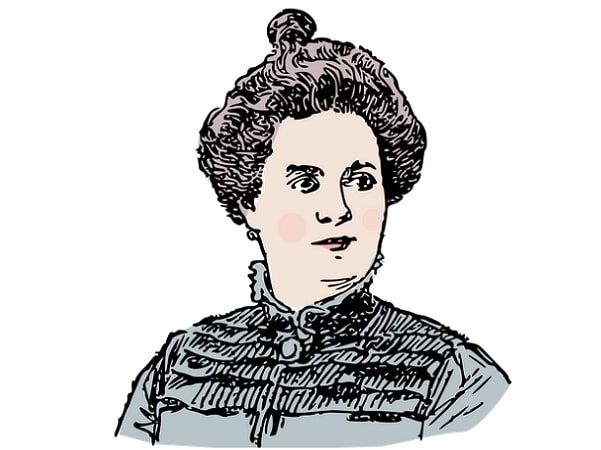Introduction: In this article – in honor of March being Women’s History Month – Gena Philibert-Ortega provides four search tips in case you’re inspired this month to research your female ancestors. Gena is a genealogist and author of the book “From the Family Kitchen.”
Researching female ancestors can be a challenge. What can make it extra hard is when we make research mistakes. What mistakes stop you from finding your female ancestors? Here are four you’ll want to stop doing today.
1) Making Assumptions
The number one issue I see with researchers as they attempt to find their female ancestors is the assumptions they make, such as these:
- “women didn’t work then”
- “no one got divorced back then”
- “all women married”
Don’t make assumptions about what women use to do or what records exist back in time. Instead, make sure to learn what records exist for your ancestor’s location and era. If you’re not sure what might exist beyond a census, vital records, or newspaper articles, consult the FamilySearch Research Wiki. Search the Wiki for the country or state you are researching.
The Wiki provides pages on Record Types. Although this won’t be an exhaustive list of everything that is available for a place, it will help. You can then search the FamilySearch Catalog for the location you are researching to learn more, and to see what is available on the FamilySearch website and at the Family History Library in Salt Lake City, Utah.
2) Not Exhausting Resources
Which websites do you search? If your answer is only one or two websites, that’s not enough. No one website has everything, and not everything is (or ever will be) online. You need to make sure that you are using a combination of online resources, libraries, and archives.
If you’re not using libraries and archives, start today. Libraries can provide you everything from books on local history and access to subscription websites to local history files found in your ancestor’s hometown public library. Academic libraries include a plethora of subscription websites and access to materials on history, local history, and topics relating to genealogy. One online catalog for libraries is WorldCat.
Archives hold materials that are rich in genealogical detail, such as diaries, correspondence, records, and more. Different types of archives collect specific materials, so researching a combination of archives may be in order. For example, search the National Archives and the county archive where your ancestor lived. One online catalog for many archives (but not all) is ArchiveGrid.
3) Using Only One Name to Search
Sure, your ancestor’s name was Sarah Ann Smith – but is that the only way you should search for her? Definitely not. You need to factor in your search:
- her birth name
- her married name (Mrs. [Husband’s first] and [last name])
- nicknames (did you know that Sally was a nickname for Sarah?)
- variations (initials only, for example)
- misspellings or alternative spellings (Sarah or Sara, for example)
Genealogy websites give you options to use when you search. For example, they may provide the option to search by Soundex. They may allow Boolean Operators, and wildcards. GenealogyBank allows you to use both Boolean operators and wildcards (for more information see our FAQ).
So, the point is: don’t settle on one search using only one name. Try several searches utilizing combinations of her name. I suggest keeping a list of all the possible combinations of her name so that you can refer to it as you search.
4) Searching Not Browsing
I know you know how to search online. You most likely do it every day. You go to your favorite website and enter an ancestral name, date, and place. But you should stop just searching for your ancestor.
What does it mean to browse instead of search? It means that you skip the search engine and go straight to that newspaper or database and you look through it, page-by-page or by a specific year. Why would you do this? After all, that could take a lot of time.
Do you ever go to the library knowing what you want to check out, and when you go to pull that book off the shelf you notice that the “perfect” book is on the next shelf? Browsing a website is sort of like that. Sometimes we get so focused on what we think we want that we either can’t find it or we lose sight that there could be other items we need. If you browse a database you may find names of other family members or your ancestor’s FAN club (Friends, Acquaintances, and Neighbors). You may find that your ancestor is listed with a name variation or misspelling you didn’t expect. You may learn more about that record set which will help you as you search.
What about browsing newspapers? One of the benefits of browsing some of your ancestor’s hometown newspapers is that it will provide you with ideas for what articles appear, and what types of articles mention women. Knowing what to expect can help your overall research.
What Mistakes Are You Making?
Don’t be embarrassed if you’re making some of these mistakes. Everyone makes mistakes with their genealogy, not just family historians new to research. What’s important is to continue to grow as a researcher and search in a way that you can find those female ancestors. Yes, there will always be those ancestors that left behind few records. But there are many who are on records – it just takes good research skills to find them.
Explore over 330 years of newspapers and historical records in GenealogyBank. Discover your family story! Start a 7-Day Free Trial

